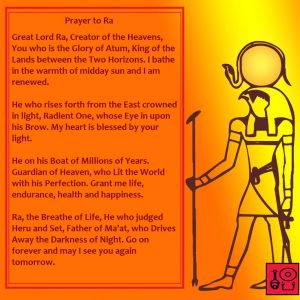The priests’ role in the temples was not pastoral and their contact with the believers was minimal. They were appointed from the scribal classes and many offices became hereditary while the role of the lay priests recruited from the general populace shrank and their importance was reduced. The control over the temples ceased to be in the hands of the community.

While a great deal is known about the official religion and rituals, the religious usages of the Egyptian people are not as well documented. They seem to have worshiped some gods in their homes, possibly by placing little offerings in front of divine statuettes. In the front rooms of the workers’ houses at Deir el-Medina there were raised platforms which may have served as altars.
Bes and Taweret were two of the main household gods.
By the New Kingdom, common individuals were allowed to place votive offerings in the outer areas of temples, but the chief occasions during which they could approach the gods were public festivals. At these times, ordinary people might witness the procession of a deity, although it would most frequently be from a distance and usually the actual image of the god would not be visible to them.
Egyptians prayed to the Nile god and thanked him for all the blessings that he bestows upon the people, especially during the festival of the inundation, or flooding.
Also, there were Egyptian Prayers for the afterlife. Wealthy Egyptians were buried with larger quantities of luxury items, but all burials, regardless of social status, included goods for the deceased.
Beginning in the New Kingdom, books of the dead were included in the grave, along with shabti statues that were believed to perform manual labor for them in the afterlife Rituals in which the deceased was magically re-animated accompanied burials. After the burial, living relatives were expected to occasionally bring food to the tomb and recite prayers on behalf of the deceased.
There was a guidebook known as the Book of the Dead which contained spells and instructions to ensure safe passage through the dangers of the Underworld. Funeral prayers (Egyptian Prayers) and spells were chanted to Egyptian Gods and a papyrus scroll of the Book of the Dead (include Egyptian Prayers) was buried with the Ancient Egyptians.
The early Egyptians also seem to have recognized that stress could contribute to illness. They established sanatoriums where people would undergo “dream therapy” and treatments with “healing waters.” A few gods were considered so dangerous that protection against them was thought to be necessary by the cautious.
One of these was Nefertem, son of Sekhmet, against whose bad influence amulets were worn. The attitude towards some of the gods was ambivalent and changed over time.